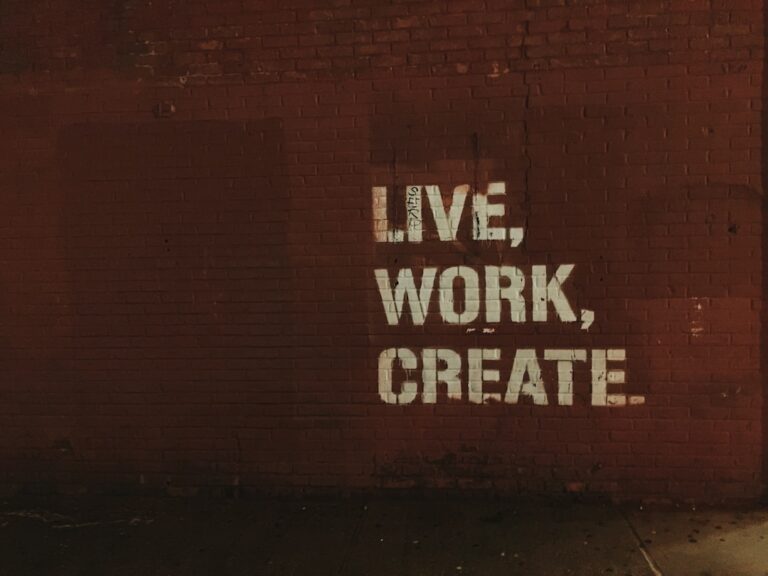
Ever feel like you're spinning your wheels, wanting so much more but not quite sure how to get there?
Yeah, I've been there. For years, I had big dreams but little direction. I’d set goals, get excited, and then… fizzle. It was frustrating. I wanted to change so many things – break free from bad habits like endless gaming and unhealthy eating, get my health in order, and just feel better. But it felt like pushing a boulder uphill until I learned that setting goals effectively isn't just about wishing; it's about a clear, actionable plan.
It turns out there's a way to approach goals that actually works. It's not magic, but it does require being intentional. So, grab a cup of coffee or tea, and let's talk about six steps that can help you turn those aspirations into achievements.
1. Get Crystal Clear on Your What and Why
First things first, you need to know exactly what you want to achieve. Vague goals like "get healthier" or "be more productive" are just wishes. They don’t give you a target. Think specific. What does "healthier" actually look like for you? Is it running a 5k? Losing a certain amount of weight? Eating more vegetables?
And just as important is your "why." Why does this goal matter to you? Your "why" is your fuel. When I decided I needed to lose weight – and I eventually lost over 110 pounds – my "what" was clear: shed the excess weight. But my "why" was even clearer. I wanted more energy to live life fully. I wanted to be healthier not just for myself, but to truly engage with the world around me and fulfill what I felt was a greater purpose. Knowing that deep reason kept me going when things got tough.
2. Make Them Measurable
Okay, so you know what you want and why. Now, how will you track your progress? If you can't measure it, you can't manage it. Your goals need numbers or clear indicators of success.
Instead of "save money," try "save $200 a month." Instead of "exercise more," try "walk for 30 minutes, 3 times a week." See the difference? Measurable goals let you know if you're on track or if you need to adjust your approach. It takes the guesswork out of it and gives you something concrete to aim for.
3. Keep Them Achievable (But a Little Stretchy)
This one's a balancing act. Your goals should stretch you a bit, push you out of your comfort zone, but they also need to be realistic. If you aim too high too fast, you might get discouraged and give up. Trust me, I've made that mistake plenty of times.
Think about it. When I was trying to break my gaming addiction, I didn't go from playing hours every day to zero overnight. That would have felt impossible. My first achievable goal was to reduce gaming by just 30 minutes a day. It was small, doable, and it built momentum for bigger changes. Start where you are and build from there. Small, consistent steps lead to big results.
4. Ensure They're Relevant
This is so important. Are the goals you're setting truly your goals? Or are they things you think you should want, or things someone else wants for you? Your goals need to align with your values and what truly matters to you in the big picture.
For me, trying to strengthen my Christian Orthodox faith helped clarify what was truly relevant. My goals started to line up more with what I valued most deeply – not just fleeting desires, but things that contributed to a more meaningful existence and a closer relationship with God. When your goals resonate with your core, you’ll find a much stronger motivation to pursue them. They become part of who you are, not just something on a to-do list.
5. Set a Timeframe
Goals without deadlines tend to drift. "Someday" is not a day of the week. Giving your goals a timeframe creates a sense of healthy urgency and helps you prioritize.
Break down bigger goals into smaller chunks with their own deadlines. If your big goal is to write a report, maybe the first mini-goal is to complete the research by Friday and the outline by next Tuesday. This makes the overall task less daunting and provides regular checkpoints. It's like having a roadmap with estimated arrival times for different legs of the journey. This helped me immensely when I was focused on improving my productivity, setting specific times for those 2-4 hour deep work sessions.
6. Write Them Down and Review Regularly
Don't just keep your goals in your head. Write them down. There's something powerful about seeing them in black and white. Put them somewhere you'll see them often – on your desk, in a journal, on a note on your mirror.
And don't just write them and forget them. Review your goals regularly. Daily or weekly is great. This keeps them fresh in your mind, allows you to track your progress, and helps you make adjustments if needed. Life happens, and sometimes we need to tweak our plans. Regular review ensures your goals stay relevant and you stay on course. It’s a simple habit but makes a huge difference.
Now, let's be real. Setting goals is one thing; sticking to them when life gets messy is another. There will be days you don’t feel like it. There will be setbacks. That's totally normal. I’ve faced countless days where old habits like laziness or wanting to binge eat tried to creep back in.
This is where celebrating small wins becomes a game-changer. When I was on my weight loss journey, or even when I was building a more productive work routine, I made sure to acknowledge every little bit of progress. Lost a pound? Celebrate it. Finished a focused work session? Pat yourself on the back. These small victories build confidence and momentum. They remind you that you are capable.
I also found that daily gratitude helped shift my perspective. Taking a moment each day to be thankful for what I had, rather than focusing on what I lacked or the struggles I was facing, gave me a more positive outlook. This, in turn, fueled my efforts towards my goals. It’s amazing how a little gratitude can reframe your entire day and give you strength.
So, there you have it – six steps to help you set goals that you can actually achieve. It's not about complicated systems or overnight transformations. It's about clarity, commitment, and consistent small actions. Trust me, if I could go from feeling stuck in a cycle of unhealthy habits, battling issues like smoking and excessive drinking, to finding a balanced, purposeful life, you absolutely have the power to make meaningful changes too.
It all starts with that first step. What's one small, clear goal you can set for yourself today using these ideas? Just one. Write it down, make it measurable, and decide on your "why." You've got this.





